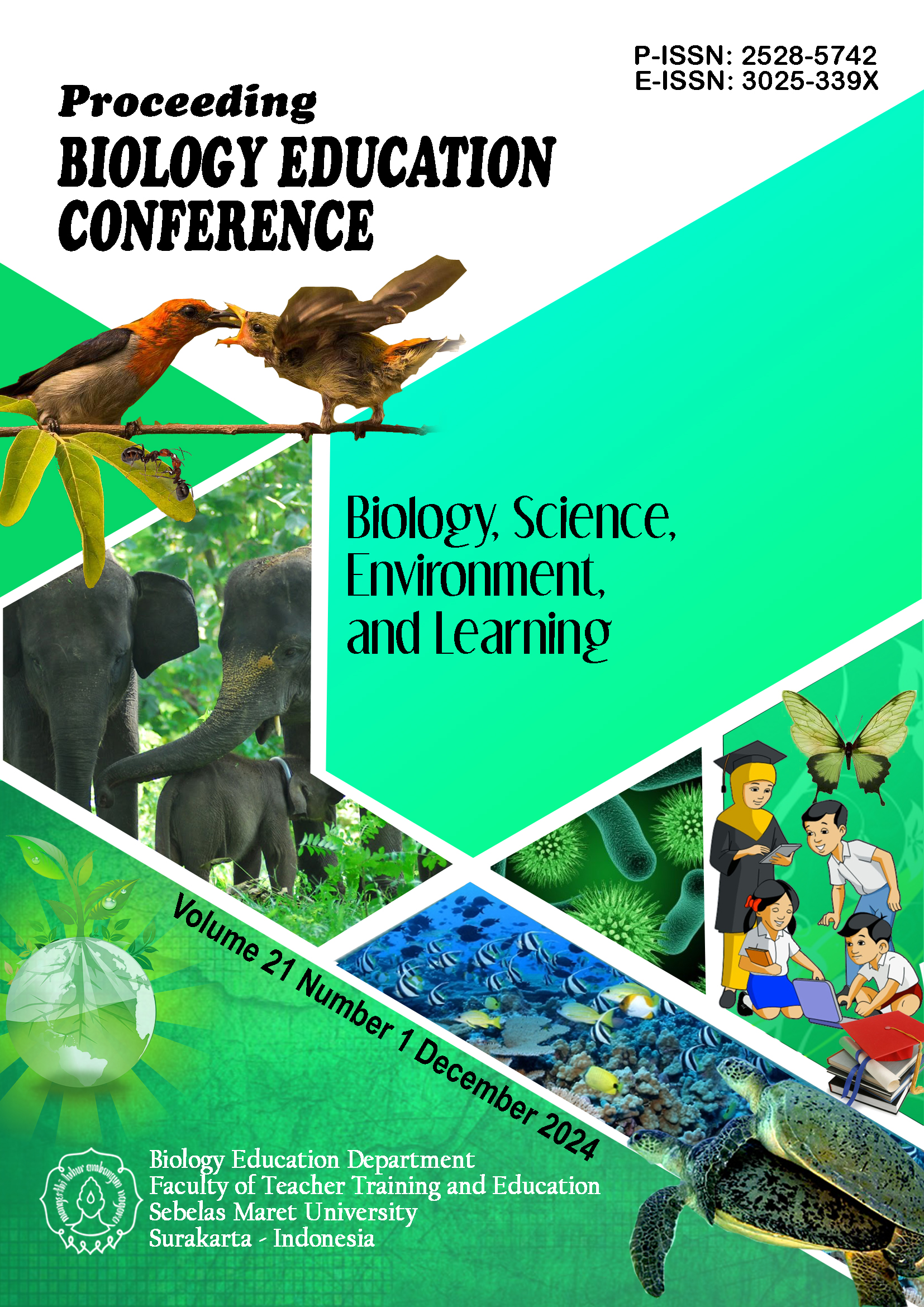 |
Proceeding Biology Education ConferenceProceeding Biology Education Conference merupakan kumpulan makalah yang diterbitkan oleh pendidikan biologi FKIP UNS. Makalah tersebut terdiri atas makalah utama yang disampaikan oleh pembicara utama dan makalah pendamping dari pemakalah yang berasal dari berbagai institusi di berbagai daerah di Indonesia, yang dipresentasikan dalam sidang paralel. Makalah yang dikemas dalam Proceeding Biology Education Conference tersebut merupakan bukti otentik komunikasi dan sharing gagasan ilmiah hasil kegiatan Seminar Nasional / Biology Education Conference. Proceeding Biology Education Conference diharapkan mampu memperkuat jejaring komunikasi di kalangan akademisi dan peneliti yang terlibat baik secara langsung maupun tidak langsung dalam acara Seminar Nasional tersebut. Manuscriptsdalam bidang biologi, sains, lingkungan dan pembelajarannya, serta bidang pengabdian masyarakat. |
Announcements
Event Conference: Seminar Nasional Biologi XIX 2023 |
|
INOVASI PENELITIAN DAN PENGABDIAN BIDANG BIOLOGI DAN ILMU PENDIDIKAN ALAM SERTA PEMBELAJARANNYA UNTUK MENDUKUNG IMPLEMENTASI KURIKULUM MERDEKA DAN PEMBANGUNAN BERKELANJUTAN Tanggal dan Waktu Pelaksanaan : |
|
| Posted: 2023-09-11 | More... |

